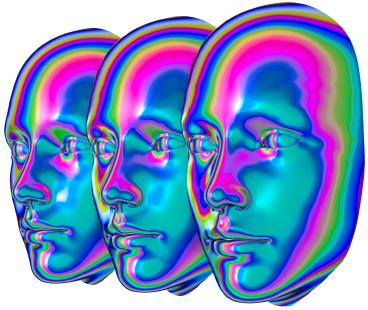Home > De psychologie van het handelen > Handelsinstincten
Volgens dat concept kunnen deze factoren leiden tot allerlei gedragingen zoals vooringenomenheid, irrationele keuzes en impulshandelingen. Binnen de psychologie van het handelen wordt ook gewezen op het belang van zelfbewustzijn, effectief risicomanagement, het beheersen van emoties en een evenwichtige mindset. Daarmee kan stress bij het beleggen worden verminderd en kunnen er rationele beslissingen kunnen worden genomen.
Handelsinstincten vormen een belangrijk aspect binnen de psychologie van het handelen. Het zijn onderbuikgevoelens of intuïties die handelaars na verloop van tijd of door handelservaring ontwikkelen. Die intuïties ontstaan in het algemeen door steeds te blijven leren en te oefenen. Het is daarbij belangrijk om op de hoogte te blijven van wat er speelt op de markt en om economische indicatoren in de gaten te houden.
Zelfbewustzijn is het vermogen om te vertrouwen op die handelsinstincten. We moeten echter onderscheid maken tussen beslissingen die gebaseerd zijn op rationele, geïnformeerde gegevens en beslissingen die gedreven worden door emoties en gevoelens. De grens tussen objectiviteit en subjectiviteit is natuurlijk niet altijd even duidelijk, maar voor een succesvolle besluitvorming is het van belang om ze uit elkaar te houden.
Handelsinstincten worden doorgaans beïnvloed door drie psychologische verschijnselen. We zullen die hieronder nader bespreken.
Zintuiglijke vertekening komt voort uit het idee dat een mening wordt gevormd op basis van mogelijke vooroordelen. We verzamelen voortdurend gegevens uit verschillende bronnen om ons heen. Dat stelt ons in staat om dagelijks te functioneren.
En we kunnen er ook van leren. Maar niet alles wat we te horen krijgen is per se onbevooroordeeld, ook al denken we vaak van wel. Dit is vooral het geval als we herhaaldelijk worden blootgesteld aan één standpunt over een bepaald onderwerp of gebeurtenis. Als er geen informatie voorhanden is om dat standpunt te weerleggen, is het waarschijnlijk dat we een mening vormen op basis van "een kant van het verhaal" en dat "feiten" daardoor veranderen in vooroordelen.

Dit concept verwijst naar de angst voor het onbekende en houdt in dat we datgene vermijden wat ons niet eigen of bekend is. Binnen de wereld van beleggen kan dergelijk gedrag leiden tot een zeer lage risicotolerantie en dus tot onrendabele financiële resultaten.
Er zijn verschillende redenen om onzekerheid te vermijden. Bang zijn om geld te verliezen kan daar een van zijn. Een andere, minder bekende reden is juist de angst om geld te verdienen. Een handelaar kan namelijk bang zijn om die winst weer kwijt te raken, bijvoorbeeld door belastingen of door schommelingen op de markt.

Er is sprake van tastbaarheid van anticipatie als men zich richt op het gevoel van anticipatie in plaats van op het bereiken van de aanvankelijk verwachte resultaten.
Dat gevoel van anticipatie kan zo op de voorgrond treden en verslavend worden, dat de handelaar zijn aanvankelijke verwachtingen eigenlijk uit het oog verliest. Anticipatie wordt niet alleen beïnvloed door objectieve analyse, maar ook door de collectieve psychologie van marktdeelnemers.

Thank you for visiting T4Trade
This website is not directed at EU residents and falls outside the European and MiFID II regulatory framework.
Please click below if you wish to continue to T4Trade anyway.
Thank you for visiting T4Trade
This website is not directed at UK residents and falls outside the European and MiFID II regulatory framework, as well as the rules, guidance and protections set out in the UK Financial Conduct Authority Handbook.
Please click below if you wish to continue to T4Trade anyway.